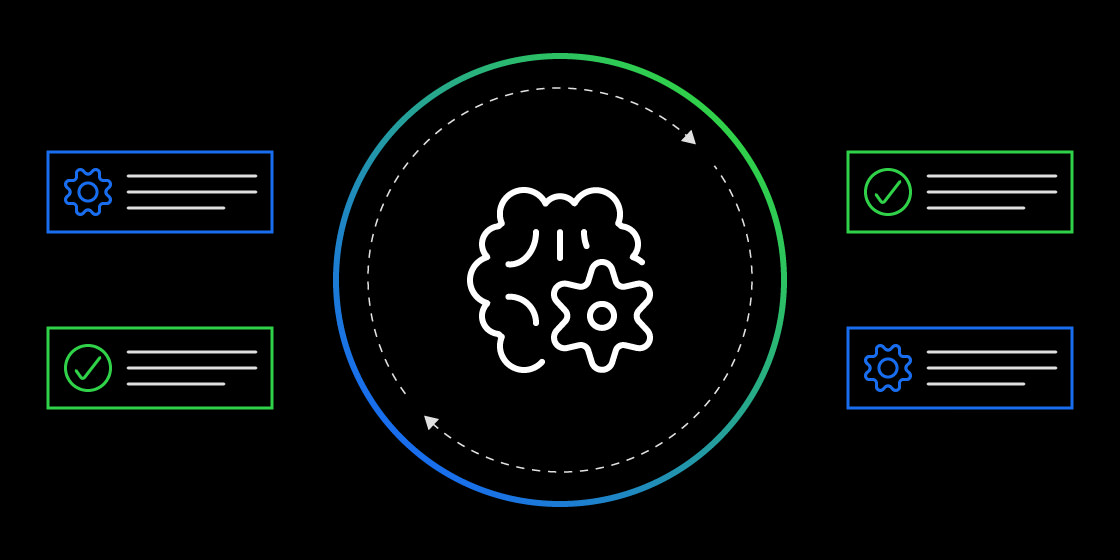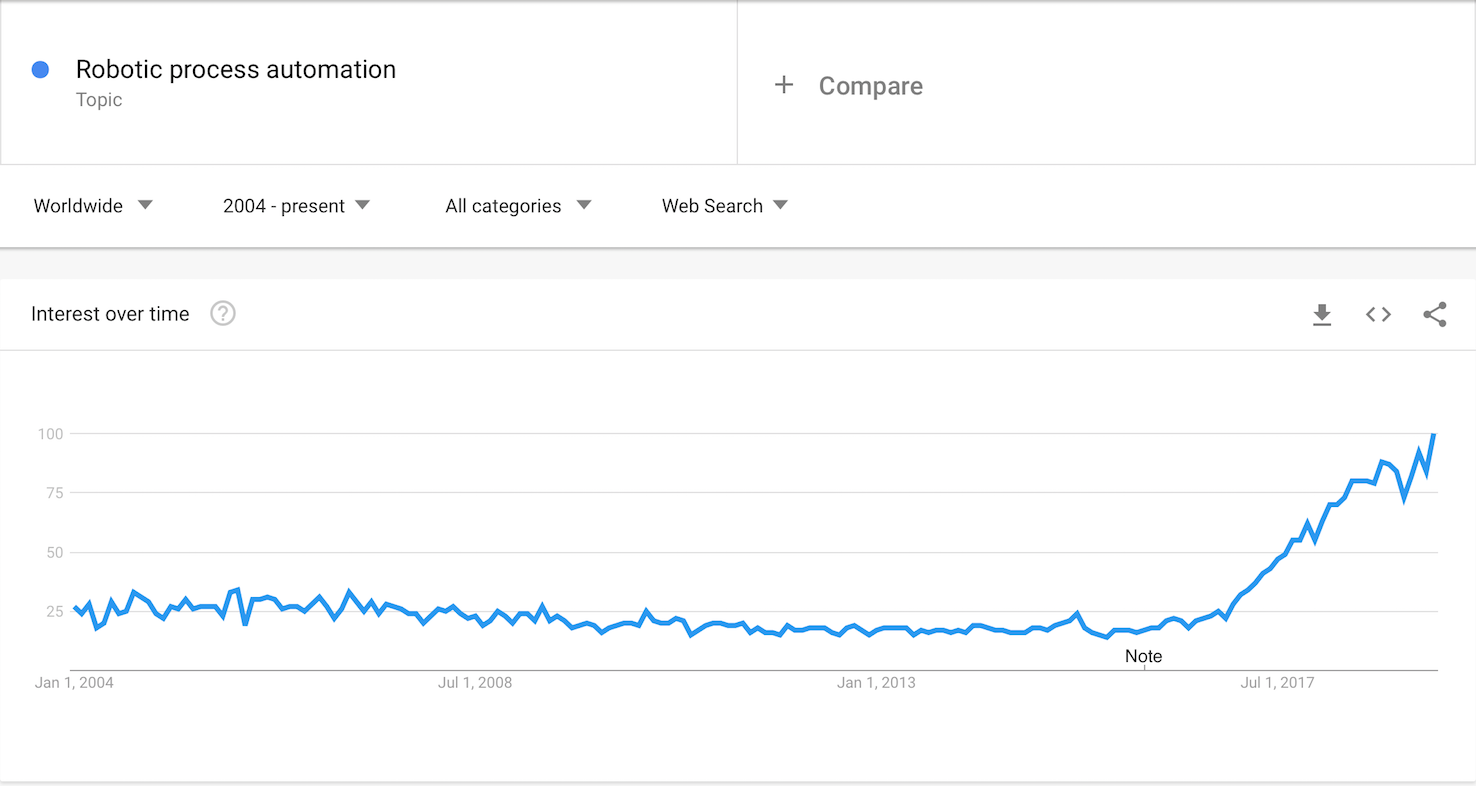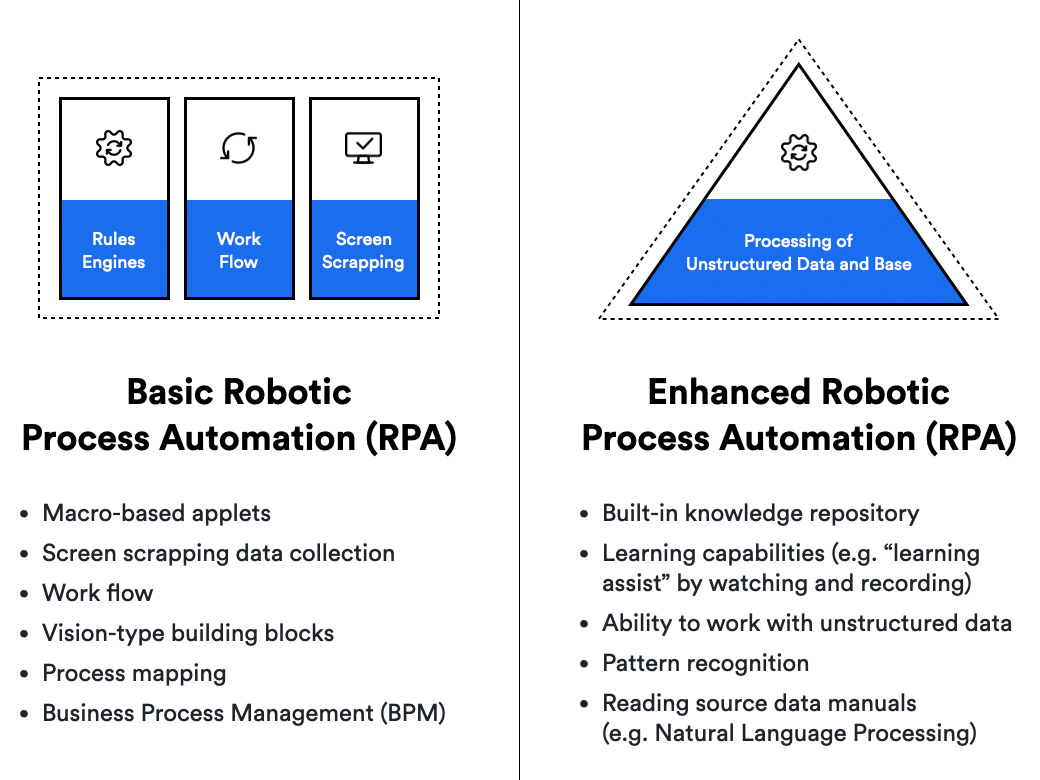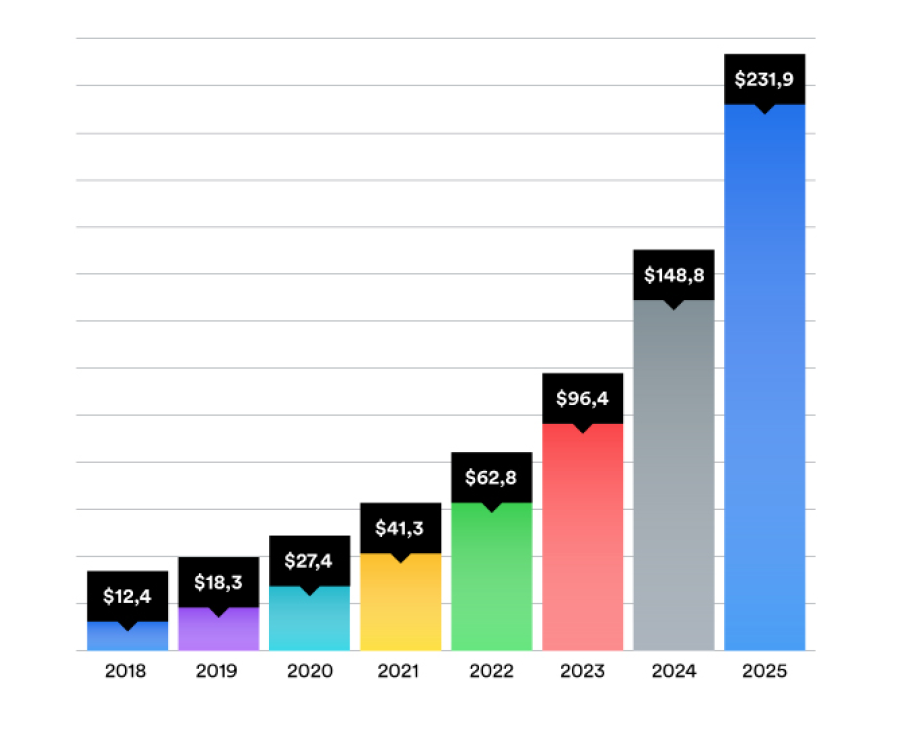Why intelligent document processing (IDP) is a better alternative to RPA
May 08, 2019 by Jessica Munday

Robotic process automation (RPA) is not a new term, but its standing in the business lexicon has exploded during the last five to 10 years. Just looking at Google Trends, you can see searches for this topic have skyrocketed since 2015, with significant pickup in 2019 and 2020. However, a new term is now surfacing that’s proving to be a superior RPA alternative: intelligent process automation (IPA).

Currently, many businesses are starting to depend on RPA for their daily operations, with even more looking to expand their relationship with the technology. During the last 12 months, 66% of companies increased their RPA spend by an average of 5%, citing a growing interest in efficient use of tech.
Gartner had predicted global RPA revenue to reach 20% growth by the end of 2021, showing little friction from the COVID-19 pandemic. And while the market is booming, many enterprises don’t realize that most RPA platforms are built with decade-old technology, vastly limited and outdated, which is why next-gen automation strategies that leverage AI, such as intelligent document processing (IDP), are becoming its successor.
Keep in touch
What is intelligent document processing (IDP)?
Intelligent document processing (IDP) has emerged as a key component within an intelligent automation strategy. IDP technology was born out of the need for organizations to accurately extract data from documents. In essence, IDP leverages artificial intelligence (AI) and natural language processing (NLP) to effectively handle and oversee document-centric business processes.
Through the adoption of IDP, organizations can optimize business processes involving large volumes of documents to reduce manual effort, enhance precision, and reach their digital transformation goals. A notable advantage of IDP is its seamless integration capability with other automation tools like robotic process automation (RPA). This compatibility with existing technologies enables companies to enhance their current automation strategies, leading to improved overall efficiency and expanded operational scope.
RPA vs. IPA vs. IDP

RPA alone has restricted capabilities. It performs one action repeatedly without considering nuances or exceptions. For example, if an RPA system was programmed to sort red and blue balls, it would be unable to react in the case of a yellow ball. It’s only able to perform automations within its predefined process.
RPA automations must have these processes programmed. They don’t learn or adapt to different workflows, making it impossible to perform complex, human-like tasks on their own.
However, when you add AI to RPA, the optimization possibilities are endless; this powerful combination is intelligent process automation and a much more capable alternative to RPA.
Intelligent process automation platforms can learn, making them flexible in the face of complex processes. IPA’s intelligence and adaptability make it capable of handling complicated, tedious human processes. By giving these robotic processes to the robots, IPA enables employees to be more productive.
The market for intelligent process automation is expected to explode during the coming years. Enterprise investment in intelligent process automation and similar technology is expected to grow exponentially to nearly $120 billion by 2026, with large-scale adoption expected across several industries.

So what can intelligent document processing do?
A vast majority of businesses see automation as the way out for addressing customer satisfaction goals. In fact, 92% have pointed to process automation and digital transformation as the key to taking their business to the next level.
Companies across dozens of industries are implementing intelligent process automation with impactful results. A report on the current IPA landscape from the World Economic Forum showed:
- Rising numbers of companies around the world adopting some form of IPA
- Increased diagnostic capability in healthcare
- Increased customer satisfaction capability in D2C businesses
- Improvements in transportation analysis for local and federal governments
While the biggest benefit enterprise leaders focus on is cost savings, there are also several more benefits that come with implementing intelligent process automation.
Unlock the intelligence in your documents with our AI-driven automation today
Learn how we helped Markerstudy reduce its claims processing time by 40%. Additionally, learn how we reduced total claim processing time by 80% for another multinational insurance partner — cutting down manual tasks from 10 minutes to just two minutes per claim.
- Speak with an expert — tell us about your specific use case.
- Get a personalized demo — schedule a demo, and our Heroes will get in touch!
Close Window
Automation Hero will track how you use the emails (e.g., at what time you open which part of the emails) sent by Automation Hero. If you have provided a separate declaration of consent that cookies for tracking your usage of the website and/or apps may be placed on your device, Automation Hero will also connect the information about your use of Automation Hero’s websites and apps (e.g., which information you open) collected by the tracking cookie to such information in so far as possible. Automation Hero will analyze such information, to identify your interests and preferences and to communicate with you in a more personalized and effective way, e.g. by providing information that you are likely interested in, like information on new technologies or products of the Automation Hero group that are likely relevant to you.
